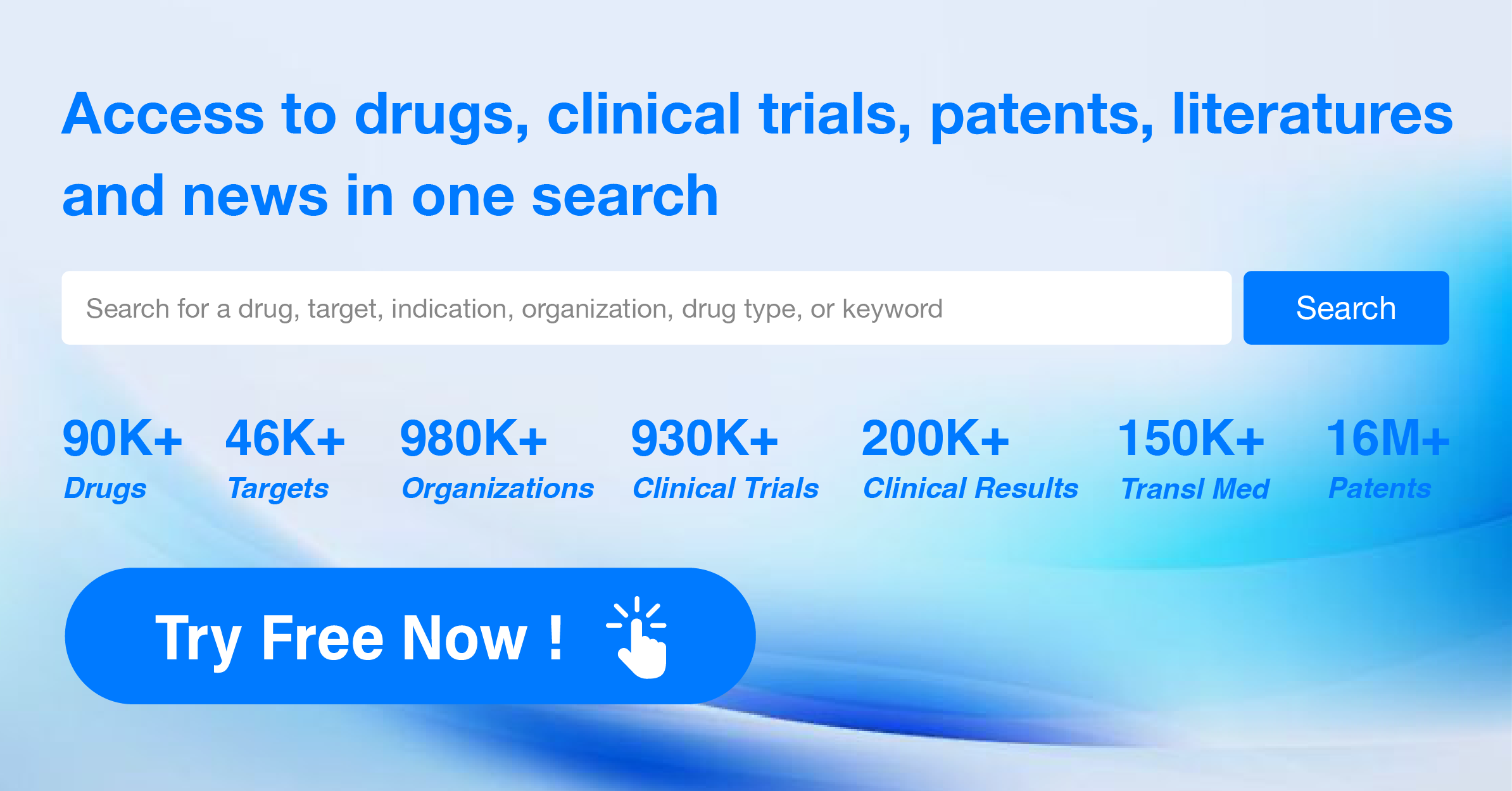Pharma Frontiers: Daily Digest of Global Pharmaceutical News – Jul 11
1.First-line Treatment for Gastric Cancer! Henlius Biotech Announces Phase II Clinical Data for HER2 Dual-Targeting Therapy
On July 10, Henlius Biotech announced the results of the Phase II clinical study HLX22-GC-201, which used the novel anti-HER2 monoclonal antibody HLX22 in combination with HLX-02 (Trastuzumab biosimilar) and chemotherapy for the first-line treatment of HER2-positive advanced or metastatic gastric/gastroesophageal junction (G/GEJ) cancer. The results were sequentially published at the 2024 European Society for Medical Oncology Gastrointestinal Cancers Symposium (ESMO GI) and the flagship journal of integrated medicine, MED. The study demonstrated that adding HLX22 to the combination of Trastuzumab and chemotherapy markedly improved the treatment outcomes for HER2-positive G/GEJ cancer patients, with manageable safety profiles. HLX22, licensed from AbClon and subsequently independently developed by Henlius Biotech, is a novel monoclonal antibody that targets HER2. It binds to the subdomain IV of HER2 at a different epitope from Trastuzumab, allowing both HLX22 and Trastuzumab to bind to HER2 concurrently, thereby exerting a stronger blockade of the HER2 receptor. Preclinical studies have shown that the combination of HLX22 and Trastuzumab can inhibit cell proliferation induced by Epidermal Growth Factor (EGF) and Histidine-Rich Glycoprotein 1 (HRG1), enhance anti-tumor activity in vitro and in vivo, and Phase I clinical trials confirmed that HLX22 is safe and tolerable. HLX22-GC-201 is a two-part clinical study that evaluates the efficacy and safety of combining HLX22 or placebo with injectable Trastuzumab (HLX02) and chemotherapy (XELOX) as a first-line treatment for patients with locally advanced/metastatic HER2-positive gastric cancer. The primary endpoints are Progression-Free Survival (PFS) and Objective Response Rate (ORR), assessed by IRRC according to RECIST v1.1. Secondary endpoints include other efficacy measures and safety.
2.Positive clinical advancements for potential "first-in-class" protein degrader, accelerating progress to pivotal clinical development
Recently, Kymera Therapeutics announced that following a review by an independent data monitoring committee of the preliminary safety and efficacy data for its investigational protein degrader drug KT-474, Sanofi has informed Kymera of plans to expand the ongoing Phase 2 clinical trials for hidradenitis suppurativa (HS) and atopic dermatitis (AD) to more swiftly advance this innovative therapy into pivotal clinical research stages. KT-474 (SAR444656) is a potential “first-in-class” IRAK4 degrader, being developed to treat immune-inflammatory diseases such as HS, AD, where there is significant patient need, and other potential conditions. IRAK4 is a key component of the myddosome protein complex, involved in regulating immune response signaling through interleukin-1 (IL-1) and toll-like receptors (TLR). IL-1 and toll-like receptors play critical roles in initiating immune responses against invading pathogens. IRAK4 acts as a scaffold kinase at the intersection of innate and adaptive immune responses, executing multiple functions through its kinase activity and scaffold features. KT-474 works by binding with IRAK4 and recruiting E3 ubiquitin ligases to tag IRAK4 with ubiquitin “labels”. These “labels” guide the degradation of the IRAK4 protein by the cell's proteasome. By completely eliminating IRAK4 through targeted protein degradation, its kinase and scaffold functionalities are affected, potentially offering broad and well-tolerated anti-inflammatory effects, providing a new therapeutic approach for various immune-inflammatory diseases. Previously released Phase 1 clinical trial results demonstrated encouraging activity for KT-474 in treating atopic dermatitis. After 28 days of treatment, patients with moderate to severe symptoms experienced a 63% reduction in itch severity and a 36% decrease in EASI score, which assesses the extent and severity of the disease.
3.Gene therapy directly injected into the brain slows the progression of Huntington's disease by 80%
On July 10th, uniQure announced positive interim results from the Phase 1/2 clinical trial of its investigational gene therapy, AMT-130, administered via direct injection into the brain for the treatment of Huntington’s disease (HD). Analysis indicated that at 24 months, patients treated with a high dose of AMT-130 experienced an 80% slowdown in disease progression, with significantly lower levels of neurofilament light chain (NfL) in their cerebrospinal fluid (CSF) compared to baseline levels. uniQure also announced that AMT-130 has been designated as the first regenerative medicine advanced therapy (RMAT) for Huntington’s disease. uniQure expects to meet with the U.S. FDA in the second half of 2024 to discuss potential pathways for accelerated approval of the therapy. UniQure is conducting two multi-center Phase 1/2 clinical trials in the United States (n=26) and Europe (n=13). A total of 29 patients were administered two different doses of AMT-130 (low dose, n=12; high dose, n=17), with another 10 control patients undergoing a sham surgery. As of March 31, 2024, 21 patients (low dose, n=12; high dose, n=9) had 24 months of follow-up data available for analysis. UniQure analyzed these 21 treated patients' 24-month clinical outcomes and compared them to data from an extended external control group (n=154), developed in collaboration with the Cure Huntington’s Disease Initiative (CHDI), which includes data from natural history studies such as TRACK-HD, TRACK-ON, and PREDICT-HD. The external control group comprised patients who met the eligibility criteria for the Phase 1/2 clinical trial, with the data statistically weighted by propensity scores to closely match the baseline characteristics of patients treated with AMT-130.
4.In Vivo Manufactured CAR-T Therapy INT2104 Enters First Human Clinical Trial
On July 10, Interius BioTherapeutics announced that it has received approval from the Human Research Ethics Committee (HREC) and a Clinical Trial Notification (CTN) license from the Therapeutic Goods Administration (TGA) of Australia to conduct the Phase 1 clinical trial of its investigational in vivo CAR-T therapy, INT2104, for the treatment of B-cell malignancies. Interius plans to begin the trial in the fourth quarter of 2024 and hopes to achieve a key milestone in the first quarter of 2025. According to industry media STAT, INT2104 is the first in vivo CAR-T therapy to enter human clinical trials. The upcoming Phase 1 trial, INVISE, will assess the safety of a single infusion of INT2104 in adults with refractory or relapsed B-cell malignancies. This global trial features a two-part, multicenter, open-label, single-dose design, with a dose-escalation part aimed at determining the dose of INT2104 to be used in the trial and future studies. Preclinical results published in June this year demonstrated that a single intravenous infusion of INT2104 across a wide dosage range achieved complete tumor elimination in systemic lymphoma mouse models. The company’s proprietary viral vector can directly generate CAR-T cells and CAR-NK cells in mice that specifically kill malignant B-cells. In non-human primates without chemotherapy pre-treatment, significant B-cell depletion was observed following a single vector infusion, with no drug toxicities noted, and one animal has shown sustained B-cell depletion effects for over six months. INT2104 is an investigational lentiviral vector-based gene therapy, designed to target CD7-positive T cells and NK cells and deliver CAR transgenes for the in vivo generation of efficacious CAR-T and CAR-NK cells. These CAR cells target CD20-positive B cells for the treatment of B-cell malignancies.
5.CSPC Pharmaceutical Group's ADC Product Approved for Clinical Trials in the USA for Treatment of Advanced Solid Tumors
On July 9th, CSPC Pharmaceutical Group announced that their subsidiary, CSPC Megalith Biopharmaceutical, has received approval from the United States to conduct clinical trials for their Antibody-Drug Conjugate (ADC), SYS6023. This monoclonal antibody conjugate was previously approved for clinical trials in China in March of this year, targeting advanced solid tumors. As an ADC, SYS6023 binds specifically to receptors on the surface of tumor cells, enters the cells through endocytosis, and releases toxins internally, thereby killing the tumor cells. This mechanism of action allows SYS6023 to target specific tumor types with high specificity and efficacy. Pre-clinical studies have shown that SYS6023 has promising anti-tumor activity against a variety of cancers, including but not limited to certain types of solid tumors, suggesting broad potential applications in cancer treatment. The press release from CSPC Pharmaceutical mentioned the significant clinical development value of this product. Prior to this, in March 2024, SYS6023 had been approved by the National Medical Products Administration of the People's Republic of China to conduct clinical trials in China for advanced solid tumors. The approval of SYS6023 for clinical trials in the United States represents a step forward towards broader clinical validation and offers new hope for treatment options for patients with advanced solid tumors. According to public information from CSPC Pharmaceutical Group, including the recently approved SYS6023, the company currently has at least six ADC products in the clinical research phase, with several products already undergoing clinical trials in the United States.
6.Junshi Biosciences collaborates with Wigen Biomedicine to develop and file for clinical trials of a Class 1 new drug
Junshi Biosciences and Wigen Biomedicine (Wigen Biomedicine) cooperatively developed the class 1 innovative drug WJ47156 (project code "JS125"), which applied for clinical trials and has been accepted by the Center for Drug Evaluation (CDE) under the China National Medical Products Administration (NMPA). Announced on July 10th by Junshi Biosciences, JS125 is a targeted histone deacetylase (HDAC) inhibitor intended for the treatment of malignant tumors and falls under the category of epigenetic modulators.
Epigenetics refers to a reversible genetic mechanism that can affect gene expression without altering the DNA sequence through modifications of DNA and histones. This mechanism plays a crucial role in controlling biological processes such as cell differentiation and embryonic development. According to the announcement from Junshi Biosciences, HDACs are involved in regulating the dynamic balance of acetylation and deacetylation of histone and non-historie lysine residues, and their expression is closely linked to the occurrence and development of various malignant tumors. HDACs have multiple subtypes, and JS125 selectively inhibits HDAC1, HDAC2, and HDAC3. It exerts antitumor effects by inducing cell cycle arrest, inhibiting angiogenesis, modulating immune responses, and promoting senescence and apoptosis of cancer cells, thus achieving the therapeutic goal against tumors. Further research indicates that HDACs are a significant connection between cancer metastasis and therapy resistance associated with metastasis. HDACs express higher levels in cancer cells due to the activation of MAPK and JNK signaling pathways, controlling gene expression related to invasion, survival, and DNA repair. Developing selective HDAC inhibitors can impact multiple signaling pathways related to cancer metastasis and resistance.
7.Yiling Pharmaceutical has filed an application for the market approval of Class 1 pain relief innovative drug, Felbinac Trometamol Injection
On July 10th, the Center for Drug Evaluation (CDE) of the China National Medical Products Administration (NMPA) displayed its latest public notification that Yiling Pharmaceutical has submitted a new drug application for its Class 1 innovative drug, Felbinac Trometamol Injection. According to public information, Felbinac Trometamol Injection is a non-steroidal anti-inflammatory painkiller, which has already completed phase III clinical studies for the treatment of post-gynecological surgical pain and moderate to severe post-operative pain. According to earlier announcements from Yiling Pharmaceutical, the Felbinac Trometamol Injection was developed in collaboration with Guangdong Zhongke Pharmaceutical Research. It is a non-steroidal anti-inflammatory painkiller intended for use in post-operative pain, various cancer pains, trauma, lumbar syndromes (acute phase, chronic exacerbation), gout flare-ups, neuralgia, and renal and ureteral stone pain. According to the Chinese Clinical Trial Registry, two phase III clinical studies of Felbinac Trometamol Injection have been completed, with indications for moderate to severe post-operative pain and post-gynecological surgical pain. Post-operative pain is an acute pain that occurs immediately after surgery, which, if not adequately controlled at an early stage, may develop into chronic post-surgical pain or persistent post-operative pain, potentially transforming into neuropathic pain or mixed pain. Effective post-operative pain management not only alleviates suffering for patients but also facilitates recovery from illnesses. Painkillers are classified according to their mechanism of action, including opioids and non-steroidal types. Opioid medications are central analgesics, whereas non-steroidal anti-inflammatory drugs provide peripheral pain relief, typically without the risk of addiction.
How to obtain the latest research advancements in the field of biopharmaceuticals?
In the Synapse database, you can keep abreast of the latest research and development advances in drugs, targets, indications, organizations, etc., anywhere and anytime, on a daily or weekly basis. Click on the image below to embark on a brand new journey of drug discovery!




